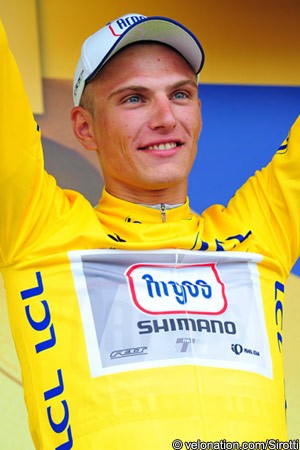“Kittel makes us believe in a pure generation of cyclists”
 The German sprinter Marcel Kittel has spoken out against doping on several occasions and has now acquired an additional credibility after he underwent a polygraph test on the subject and passed.
The German sprinter Marcel Kittel has spoken out against doping on several occasions and has now acquired an additional credibility after he underwent a polygraph test on the subject and passed.
The Argos Shimano rider, who won four stages this year in the Tour de France, agreed to undergo the test after being requested to do so by the German Sports Bild magazine.
Kittel agreed, unlike all of the German Tour de France riders who were requested to do so in 2007.
The lie detector tests were carried out by monitoring his blood pressure, heart rate, breathing, sweating and general responsiveness. He was asked both open and closed questions, including if he had ever used banned products or if they had been offered to him. He said no.
The forensic psychologist Holger Leutz concluded that on the basis of the physiologicial responses, that Kittel was speaking the truth.
“The things we have monitored during the interview were very evenly measured,” stated Leutz in his assessment. “That is a sign of credibility. Kittel makes us believe in a pure generation of cyclists. I dare say in response to what the detector indicates that Marcel Kittel has never used doping and is a clean athlete.”
German media has been particularly scathing of the sport in recent years, reacting to scandals involving Jan Ullrich, Patrik Sinkewitz and others by dropping coverage of the sport. Kittel and other riders have faced a barrage of questioning when they have been successful.
He himself has spoken out several times in criticism of doped riders, saying that he believes their conduct is unacceptable.
Although the reliability of polygraph tests is questioned by some, the results will likely encourage his fans and so too members of the German public who are interested in the sport.
“I have nothing to hide, so that is why I took part,” he explained. “I stand for clean sport and this test has confirmed that.”
He added that the cynical reactions during the Tour were hurtful, including those at races who dressed up as syringes. “All we can do is fight for credibility and trust,” he said, in talking about what can be done to counter that.
Kittel’s Tour de France performance saw him take over from Mark Cavendish as the rider who is currently regarded as the fastest sprinter in the sport. He is 25 years of age and is aiming to continue improving and clocking up big results.